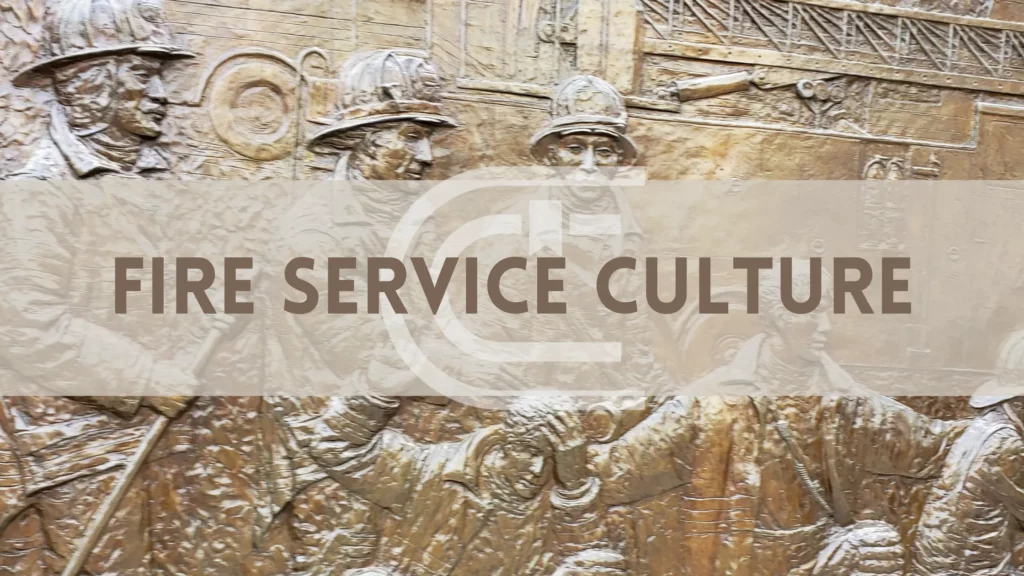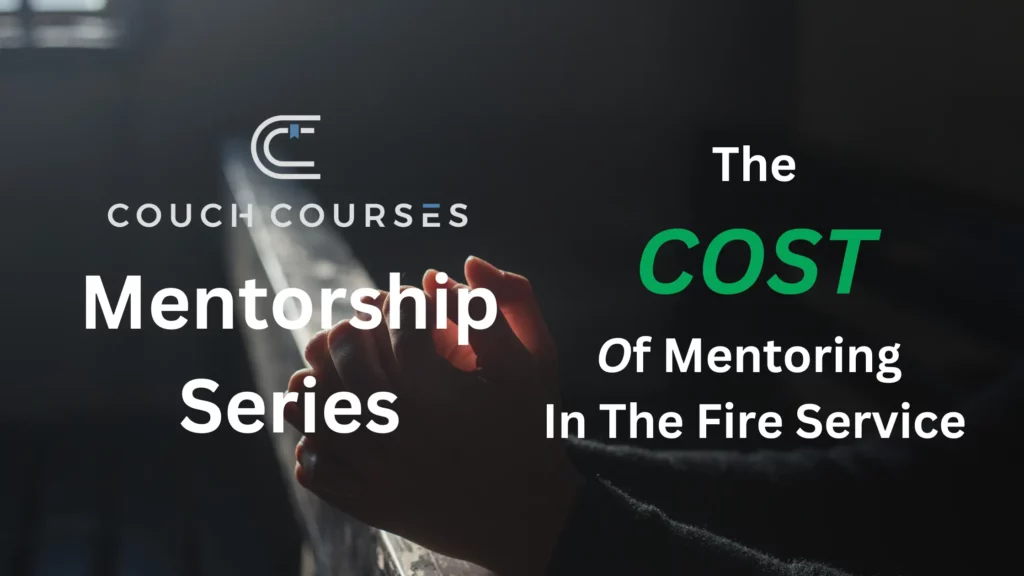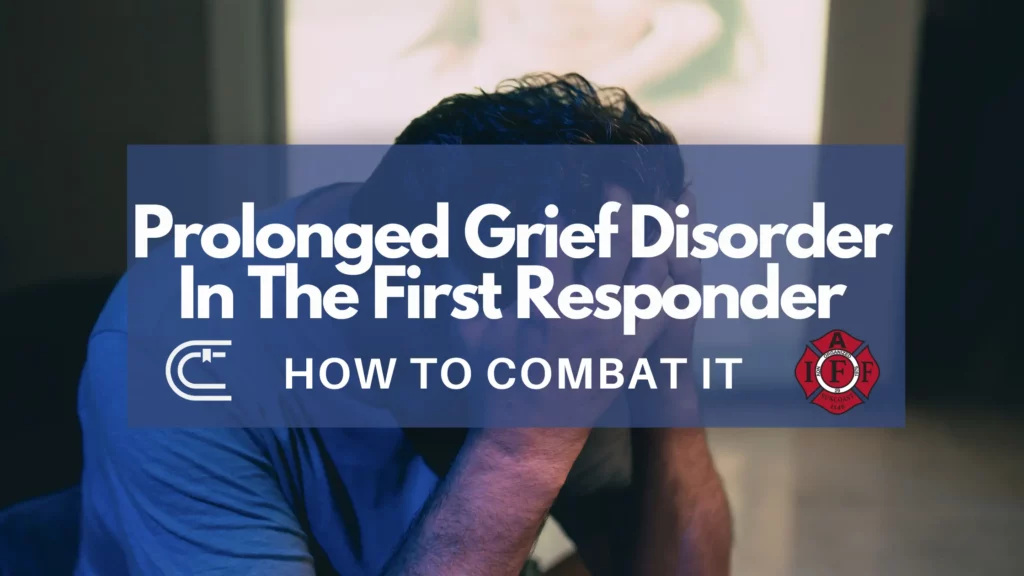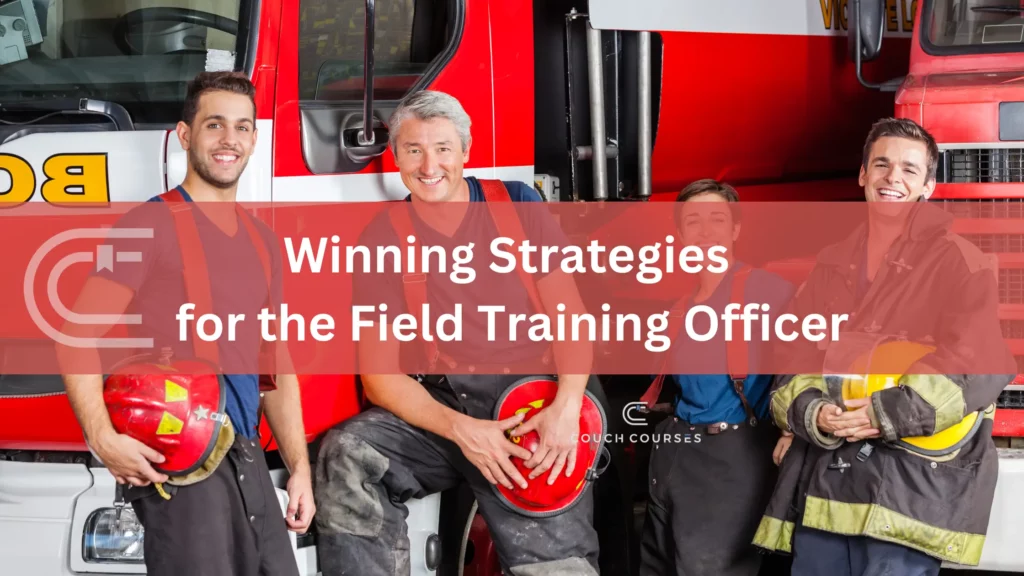Fire Officer Promotional: The Interview
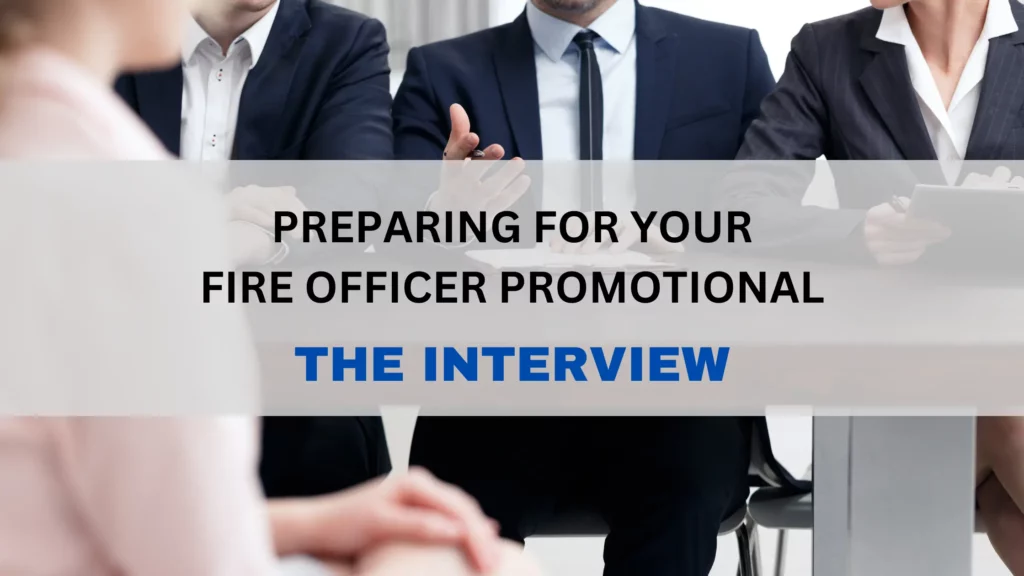
The fire officer promotional interview is one of the most underrated assessment portions of the promotional process. Most candidates spend time on practicing for the tactical scenarios and written exam, and consider preparing for the interview portion last, if at all. Unfortunately, that’s a big mistake.
Who makes up the interview panel?
Usually the interview panel is made of current officers at either your fire department or other fire departments in neighboring jurisdictions, or a combination of the two. There could also be professionals in human resources and other departments in your locale on the panel.
Know the purpose of a fire officer interview assessment
The interview process is an opportunity for the agency you work for to understand why you are applying for this position, and assess your ability to fill the role. This means your responses to their questions will directly impact their understanding of your qualifications.
Point blank: Are you READY to assume this new responsibility with its challenges?
What to be aware of during an interview
The number of books that have been written on promotional interviews is extensive. Knowing everything there is to know about an interview is impossible. Memorizing answers to ‘101 interview questions’ is ridiculous, and not the goal of this article.
In an effort to condense the response here, we are highlighting three topics for you to work on: Appearance, Body Language, and Response.
Your appearance
This should be straight forward, but often isn’t. Remember, you should know what your industry standard is for appearance. Your appearance includes the following topics:
- Is your hairstyle professional for this industry? (to industry standard)
- Is your jewelry appropriate? (to industry standard)
- Limit perfumes/cologne. (to industry standard)
- Is your suit or uniform clean, pressed, and does it fit appropriately? (to industry standard)
- Are your shoes clean and shined? (to industry standard)
- Are you wearing a belt and/or tie appropriately? (to industry standard)
You will be judged on your appearance the second they see you. It will be their first impression before even the firs question is asked, so why not make it a good one.
Your body language
The goal in an interview is to be relaxed and confident. How do you portray this?
- When you walk in AND when you exit, introduce yourself and shake hands with a smile.
- When you sit down, sit straight up. Don’t slouch.
- When answering questions, lean forward slightly.
- Maintain eye contact with the panel as much as possible, but try not to stare at a panel member uncomfortably long.
- Rest your hands in a natural position on your lap or rest them on the table top folded. Don’t fidget with them, sit on them, cross them, or put them in your pockets. If you use hand gestures when you talk, do so naturally.
- Smile often.
If you embrace these concepts and practice them, you will continue reinforcing that good impression.
Your response to questions
Do you have an understanding of what the interview panel is asking? How you respond and what you respond with are both important.
- How you respond refers to the following:
- Speed of response. Did you take a few seconds to think about your response, or was it a canned answer.
- Tone of response – was the manner you spoke to the panel appropriate? Was it confident, excited, understanding, interesting, and not monotone. Did you annunciate your words, and is the panel tracking you?
- What you respond with refers to the following:
- Was your response short and concise? Do not ramble on. Often this will impact the panel the opposite of what you intended. Most answers can be 3 to 5 sentences. A few will require stories to be told, and should range from 3 to 5 minutes.
- Did you answer the question? Does it make sense? This is where preparation really helps. Regardless of how good the response sounds to you, the question still needs to be answered. And vice versa. The question can be answered, but does it make sense?
Understanding interview questions
Why are these questions being asked? What do interviewers want? It should be clear, and it is. These are typically the reasons you are being asked the questions whether the panel knows you or not:
- Trying to understand you better as a person.
- Determining if you are qualified for the new position.
- Assessing if you have the knowledge, skills, and abilities to succeed in the new position.
- Evaluating your ability to resolve conflict.
- Observing your professionalism and maturity based on your responses.
- Gauging your proficiency in teamwork and troubleshooting.
Interview questions will cover a wide variety of skills such as communication, critical thinking, and conflict resolution to name a few. Preparation is the key.
Sample interview questions
One of the keys to answering interview questions is preparation. You have to understand what the panel is asking, and how to apply your knowledge, experience, and reasoning into your answer. Take the time to support your answer with a personal or professional experience if possible. Sometimes, they may just ask you to define something, or explain an experience. Be prepared to do just that.
Here are some typical interview questions you may see, or versions of them. Click on each one to see the reason they would ask this and some sample responses. Remember, your responses would be different and based specifically on your life experiences.
Reason: Is the candidate here for the right reason?
Good responses – “I think the direction the department is headed is great and I am excited to contribute to that mission and supporting it in this new position.”
“This position has challenges, and I am excited to apply my knowledge to tackle them both personally and professionally.”
“I want our personnel to thrive in their roles and the community to receive the benefits of this growth.”
“This new role is aligned with where I want to go in my career and places me in a unique position to help achieve a strong culture to support the mission of this organization.”
Reason: This is to assess the candidate’s self-confidence and their ability to meet the responsibilities of this position. If they don’t answer well, it may show they will perform poorly later down the line.
Good response – “A combination of my skills, experience, and professional approach demonstrates the contribution I will make to succeed in this position and contribute to the success of the department’s mission.” (Add in relevant skills and experience as appropriate)
Reason: This is to understand if you learn more from your failures than successes. It shows introspection and a desire to improve. A person who has never failed has never taken risks. They may not be right for the position.
Select something that demonstrates a negative experience in the past where you took a calculated risk and failed, but you learned from it and improved moving forward. This response should take some time, since you must tell the story of the risk taken, the results, what you learned, and what you changed to be successful in the future.
Good response –“When I was asked to do a task on a call, I thought I knew what my officer wanted. I took an approach with this in mind. As a result, my coworkers had to do extra work to correct it. I learned to never assume that my understanding of a task was perfect and to ask questions up front to clarify what was being asked.”
Reason: They want to know what you consider important in your work life. This response should be a key accomplishment you feel is important to you, your team, or your organization.
Good response –“Worked as part of a team, or individually, on a project that seemed impossible at first because it had a deadline, legal terminology and laws incorporated into it, and a large group of people that would have to come together and contribute to it. However, we were able to do just that to complete the project.”
Reason: Conflict is unavoidable, and they want to know if you handle it constructively or destructively. Or if you ignore it – which is not appropriate.
You should show how you work to defuse the situation and how you resolve it. Stay calm, maybe even remove yourself from the environment, to gain perspective.
Good Response: “I was consistently receiving an under-stocked unit from the previous shift, and my initial response was frustration and anger. Instead of engaging the crew while I was angry, I opted to accept pass-on and allowed myself to cool down. The next shift I spoke with the personnel involved in a professional manner, and explained the importance of having a stocked unit, only to find out that both of them thought the other person was restocking after the calls. The issue was resolved and didn’t need to be pursued further.”
Reason: These are two separate topics that are required of any officer position. They want to know if you understand when you will have to apply each. It is a two part question.
Good Response: “Leadership is the ability of an officer to influence others towards the success of the organization, where as management is about managing people and their tasks.”
“I have been a leader on the job by inspiring people to pursue continued education to better support the department’s mission. I have been a manager on the job by holding coworkers accountable for completing their daily work tasks.“
Reason: This is a humility question, and can identify possible red flags on a candidate. Answer this question with caution. Remember, if you name a weakness that still exists, you aren’t doing anything to improve it. This requires you to be honest with yourself, and figure out how you improved on something in your life. Or, something you are working on currently to try and improve.
Good Response: “I used to be afraid of public speaking, and was nervous to explain our job and equipment to citizens when we had special details. I knew this was something we did all the time, so I did some research and found out about Toastmasters. I joined for free through the organization and have overcome my fear of public speaking since.”
At the end of the interview
When the interview is over, sometimes the panel will ask if you have any questions. Sometimes they will just end the interview with that is all they had for you. There are some do’s and don’ts at this point.
Do’s
- Do say thank you for your time.
- Do ask when you should expect to hear from them next if you are unsure.
- Do ask about the next step in the process if they are familiar and you are unsure.
- Do smile and shake their hands when you leave.
Don’ts
- Don’t ask questions that are personal in nature (How is your family? if you know them)
- Don’t ask questions about pay/vacation/benefits.
- Don’t ask them if you interviewed well.
Interview overview
Remember, an interview is important in communicating to a panel of decision makers your ability to perform in the new role. Take the time to reflect on your life and work experiences to help answer the questions with relevant answers. This may require you to sit down and conduct a personal reflection on yourself. Do it.
Once you have some personal information fresh in your head, you can begin practicing your response to specific questions. I recommend writing down a few key words to help you remember your experiences and how they would apply to a slew of questions the panel may ask.
Good luck!

